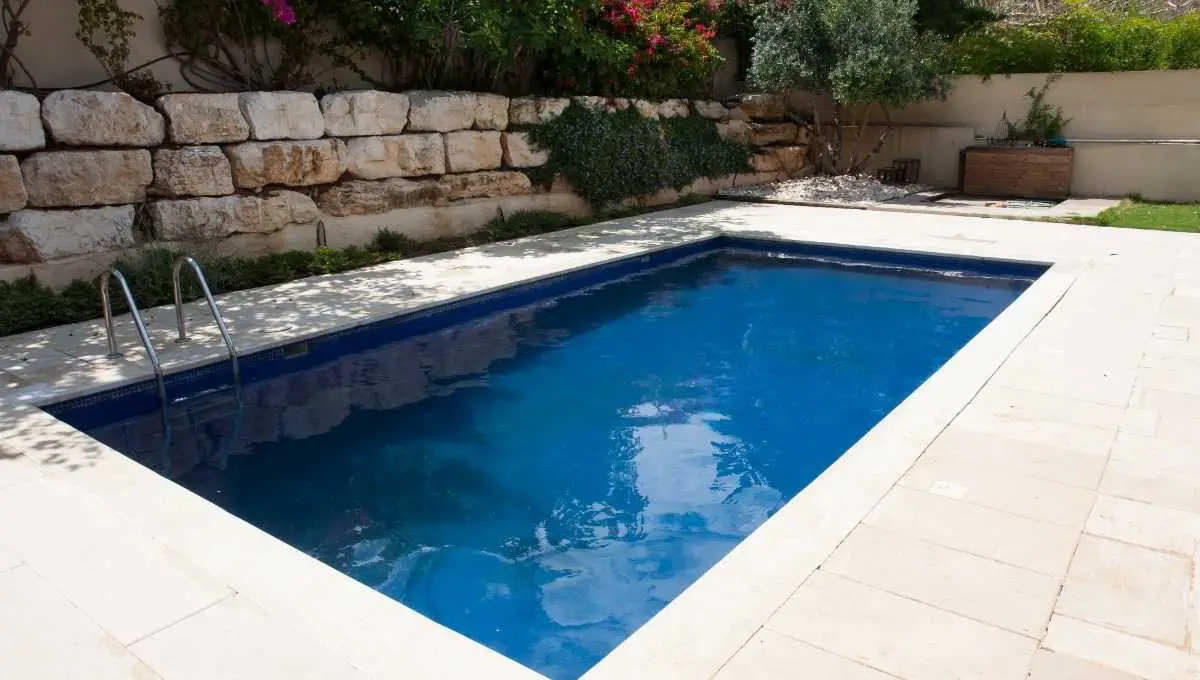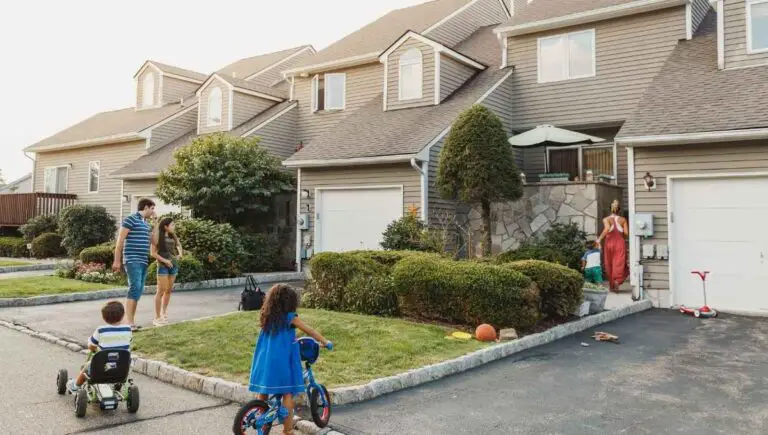How to Keep Neighbors From Using Your Pool All the Time

Having a pool in your backyard means you can go for a dip anytime you want. Plus, you can have all the fun and enjoyment when you have guests over. What you may not have considered, though, is the fact that it can also attract kids in the neighborhood as well as uninvited guests. In that case, you need to know how to keep neighbors from using your pool.
The best way to keep neighbors from using your pool is to be upfront and honest about your reason. One acceptable reason you might give is that you don’t want to be held liable for any accidents happening on your property due to pool usage.
Giving out your reason may not be enough in most cases, especially if those who want to use your pool are kids. If you are not sure how to approach neighbors who constantly want access to your pool, we got you covered. This article will explain what you can do to make sure pool access is granted only to family members.
Should I Let Neighbors Swim in My Pool?
Your new backyard pool has attracted your neighbors’ attention – particularly the kids. So the parents come over regularly to let their kids use your pool.
Some people won’t mind sharing the pool with neighbor. In fact, that would be a whole lot of fun to have them over, especially if you’re great friends with your neighbors and their kids.
But what if you and your neighbors are not that close? What if their kids still insist on coming over despite not having an accompanying adult? Would it be a good idea to let the kids swim? Should you just let neighbors come over and use your pool whenever they want?
Keeping your pool all to yourself and barring other people from using it is perfectly okay. But let’s admit, it can be difficult to let your neighbor know that pool use is strictly for family members.
You might be worried about causing tension just because you refuse to share your pool. But you have to understand, though, that people should respect pool etiquette for neighbors. After all, it is your swimming pool and you get to make the rules.
If you’re constantly wondering, “should I let neighbors use my pool?” also keep in mind that accidents can happen and if they do, you could be held responsible. This is one of the main reasons why most people want to keep their neighbors away from their pool.
Are You Liable If Someone Drowns in Your Pool?
You may not have thought about what comes with owning a pool in the backyard. It’s a very enticing feature in your property that a lot of adults and kids can’t resist. In that case, you might find yourself constantly worrying about unauthorized pool use.
Do keep in mind that you will be held liable for any pool accident – whether you’re around to supervise users or not. In other words, even if you did not invite neighbors over to swim in your pool but they used it anyway and one of them ends up drowning, you are responsible for that incident.
This holds true for anyone – particularly a child – who might wander into your property and end up in your pool. You can’t get away with the responsibility even if you explain that you didn’t ask anyone to come over and use it. For this reason, you must ensure that your pool is closed off to other people.
You might think posting a sign that warns others of trespassing could help, but there are instances when these are easily ignored. In addition, it’s not a guarantee that you are protected from a lawsuit if accidents happen despite having signs posted.
You might also enjoy our post on Can I Put a Pool in My Front Yard?
How to Keep People Out of My Pool
Kids are often victims of accidental pool drowning due to unsupervised swimming. The last thing you want to happen is to have a kid drown in your own swimming pool.
Sure, parents are supposed to watch their kid’s every move near the pool, but you – as the owner – share the responsibility of keeping the kids safe.
But other than children, accidental pool drowning can also happen to adults – especially if alcohol is involved. One of the adults that is using your pool may be too intoxicated that he or she ended up drowning. You don’t want that to happen as well.
With that in mind, you should make sure that these people cannot have access to your backyard pool, at all cost. If you are willing to share your pool, however, you can simply set up pool rules for neighbors to follow.
One of the important rules to establish is to never let anyone in or near the pool without an accompanying adult.
In regards to the overall safety, you can also set the following rules:
- No pushing, no running, and no diving
- The pool is not your toilet – head to the bathroom.
- Call for help if someone’s in trouble.
Tips To Restrict Pool Access
If you don’t want to deal with neighbors and swimming pools usage, the most important thing to keep in mind is that fencing is everything. Some pool owners have experienced still getting unauthorized pool visits despite having a fence.
This is because the fence is either not high enough to be out of kids’ reach or it doesn’t have an effective lock mechanism. Below are several tips on how to ensure that your pool will not be easily accessible to anyone, especially the little ones.
- The entrance to your backyard shouldn’t be the only area fenced, but also the pool itself.
- Should you install a fence on your backyard, make sure is high enough and has an excellent lock mechanism.
- Install removable mesh fences to keep children out. Most safety pool fences are recommended to be four feet in height. One good example is the 48-foot Life Saver Pool Fence.
- When buying pool fences, make sure that the gate is self-closing or self-latching for that extra safety.
- Invest in a secure pool cover that you can easily remove when the pool will be used. If you have one of those large inflatable pools, you should purchase a cover, such as Intex’s rectangular pool cover.
- A pool alarm, like Lifebuoy Pool Alarm System, comes in very handy as it alerts you of any motion in the water.
Other than fencing and safety gates, one way to keep people out of your pool is to conceal your pool in the first place. If your neighbor doesn’t know that you have a pool, they will less likely become tempted to visit you.
Watching you play in your pool can make your neighbor envious but that doesn’t have to happen when you keep the pool out of sight. You can achieve this by putting up privacy screens. Go for heavy-duty privacy screens that have the right height, such as this six-foot screen from Windscreen4Less.
How to Ask Someone to Use Their Pool
It is generally viewed as rude to call up someone just to use their pool. That’s what public pools are for. However, this will still depend on the kind of relationship you have with a pool owner. For instance, if it’s a relative or a close friend, you can simply call them, pay them a visit and go for a dip.
On the other hand, if it’s your next-door neighbor, it might be rude to ask them to use their pool. By asking, you are putting the person on the spot – they may allow you or not.
Either way, that will make them feel uncomfortable. Even then, if swimming in neighbor’s pool is what you really want to do, the best option is to wait to get an invite.
How To Politely Deny Neighbor’s Request To Use Pool
Whether you don’t want to share your pool because you just don’t like having someone else over or for safety reasons, it still helps to know how to respectfully decline people’s requests. That way, you don’t have to strain the relationship you have with your neighbor.
Turn Them Away in a Nice Way
Sometimes, there’s no simpler way to deny visits than to politely turn your neighbors away, especially if they come unannounced. If you have to send them away, let them know it’s because you’re busy and you usually can’t entertain guests when they drop by without prior notice.
Set Time Limits
If you do allow your neighbors to use your pool, set a time limit, and enforce that limit. This can be difficult when kids are also present since they want to extend their stay. If that happens, make sure you talk to the parents.
Set Your Rules
As mentioned, the pool is yours so you have the right to set the rules and make sure everyone follows. You can even indicate that kids are not allowed in the pool if you have to. Since the guests are on your property, they should be following and respecting your rules.
Conclusion
While swimming pools can be a great addition to your home, you have to be open to the fact that it can be inviting to some people. Neighbors might drop by to ask to use your pool. Worse, there are swimming pools bad neighbors will use even without the owner’s permission.
Whichever the case, keep in mind that it’s best to restrict pool usage and make sure only you and your family can use it unless you invite people over. It’s also worth noting that any accident in your pool or your property will be your responsibility.
To be on the safe side, fence your property and your pool to restrict access and prevent its unauthorized use.







